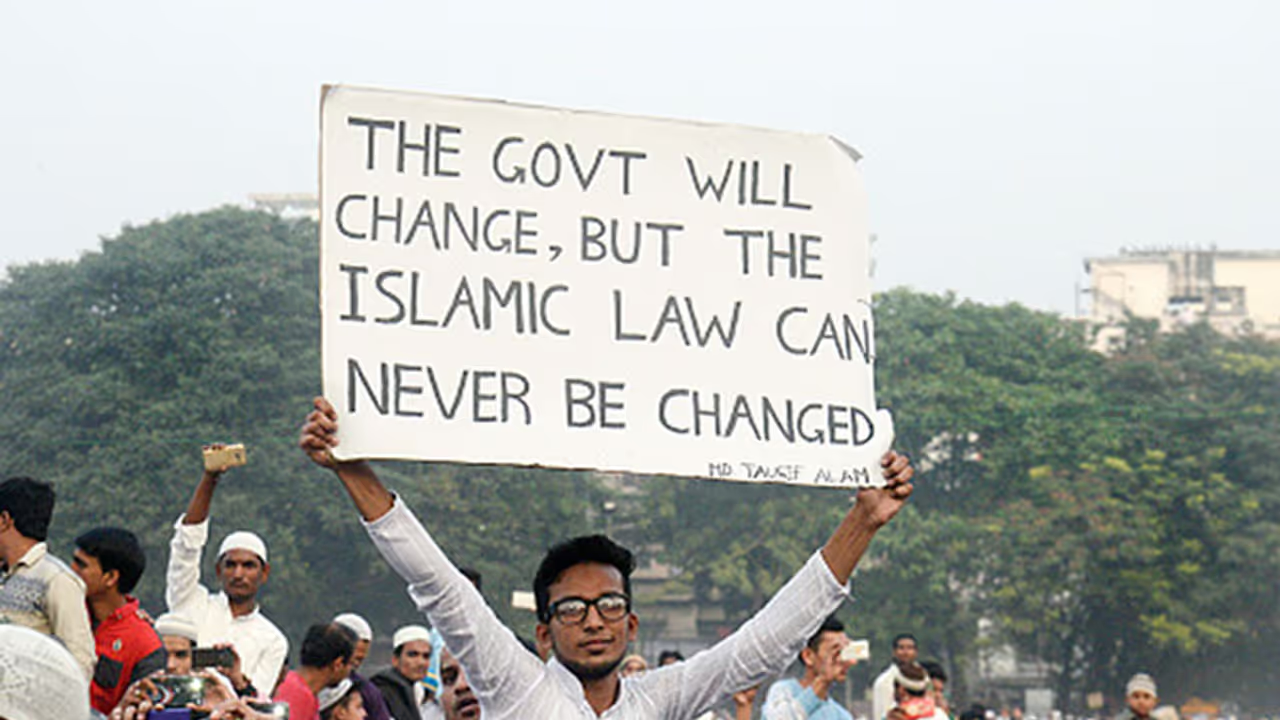Gender justice is a major issue at the doorsteps of the Indian judiciary. The Supreme Court is now assuming the role of moral code dictator rather than dispensing justice.

The formation of the All India Muslim Law Board happened when the community felt that the highest judicial authority in the country, the Supreme Court of India was trying to subvert Sharia Law, deemed as a Personal Law. It showed unity, determination and resolve of the Indian Muslim community to protect the Muslim Personal Law.
Previously, the Supreme Court sought to rule in a matter concerning personal Muslim law was in 1985 resulting in what has come to be known as the Shah Bano Amendment which was an embarrassment to the SC. The Rajiv Gandhi-led government, present at that time, overruled the decision in order to appease the pressure from the Islamic orthodoxy. The Muslim Women (Protection of Rights on Divorce) Act was adopted in May 1986 and nullified the Supreme Court’s judgement in the Shah Bano case.
Now cut to 2016 you have the famous Sabrimala Temple case, where women were lobbying for their rights to enter the temple. The temple’s governing board argued that barring entry to women who had begun menstruating was justified according to ‘custom’ and they cited the Kerala Hindu Places of Public Worship (Authorisation of Entry) Rules, 1965, which permit prohibiting women from accessing places of worship where “custom” or “usage” requires it. With the SC’s intervention it begs to raise the question to what extent can religious institutions continue or practice their own customary or traditional practices? The matter is still pending a decision.
This is certainly a controversial move wherein the Supreme Court has decided to move in and end the gender inequality raised by the petition to end triple talaqs in the Muslim community. Personal laws can't be challenged as that would be a violation of the fundamental rights guaranteed by the Constitution, said the All India Muslim Personal Law Board. The board also said personal laws, which are based on the scriptures and customs of each major religious community in India, can't be rewritten in the name of social reform and that the courts can't interfere in them.
Over the years, the Supreme Court has been taken differing views while dealing with personal laws but the question arises why should the Supreme Court be telling the Muslims what they need to do within a community. Are we to be spoon-fed everything and all decisions enforced upon us? The decision should be taken by the so-called righteous purveyors of the Muslim community in India, in this case the All India Muslim Law Board.
According to a press release by the AIMLB, on behalf of all the Muslim women in the country, it stated that "It is gross injustice to women to ban the Talaq system as women hold an honourable position in Islam and they cannot be forced to go back to the same husband who divorced her and wants separation. Talaq whether single, double or triple is the most disliked act allowed to relieve the couples from unsuccessful marriages."
The decision to ban or not to ban the practice should come from the Muslim Board if they actually care about their women and are willing to subvert patriarchal norms for once. It will be hailed as a momentous decision not if it is enforced upon by the Supreme Court but rather taken by the Board itself. In this case, there is a section of women who feel their rights are being threatened by the Supreme Court and not the other way around. That is why the court needs to strike a fine balance between two rights - equality before the law (Article 14), and the rights of minorities to set up and administer their own religious and cultural institutions (Articles 25-30).
To quote Justice V.R. Krishna Iyer, in ‘Unifying personal laws’ in The Hindu (September 6, 2003): “My powerful plea is that the personal laws may be reformed from within, without a quantum leap into a common code. Remarkable changes in Islamic laws are possible without violating the Quran but adopting progressive hermeneutics.” The issue described as ‘triple talaq’ has unnecessarily been confused with the issue of a uniform civil code, thus thrusting India’s minority Muslim community into the defensive.
In conclusion, the desirability of change in customs and traditions within a certain community should arise from within its members and not be thrust upon by any authority. Anything which is enforced upon us will always face opposition and in this case the after effects will be great and will create factions and friction within communities in India. This is with regard to any community , be it a minority or a majority.
